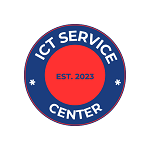Disadvantages of ICT include security risks and overreliance on technology for communication. ICT can pose cybersecurity threats and can lead to social isolation due to decreased face-to-face interaction.
As technology advances, the risks of data breaches and cyber-attacks increase, putting individuals and organizations at risk. Additionally, over-dependence on ICT for communication can lead to decreased interpersonal skills and a lack of meaningful connections. It is important to be mindful of the potential drawbacks of ICT and find a balance between technology use and personal interactions.

In today’s digital age, Information and Communication Technology (ICT) has revolutionized the way we communicate and access information. However, along with its numerous advantages, ICT also comes with several disadvantages that need to be carefully considered. This article will explore the potential downsides of ICT and how they can impact individuals and society. Understanding these drawbacks can help us navigate the digital landscape more effectively and make informed decisions about our technology usage.
Impact Of ICT On Mental Health
While ICT has revolutionized the way we communicate and access information, its impact on mental health cannot be overlooked. The constant engagement with digital devices and online platforms has introduced various challenges to our mental well-being. It is important to recognize the potential adverse effects of ICT on mental health in order to address them effectively.
Effects On Social Interactions
The widespread use of ICT has shifted social interactions to digital platforms, undermining face-to-face communication. This shift can lead to feelings of isolation and disconnect, as individuals may struggle to develop meaningful relationships outside of the digital realm. Additionally, the prevalence of online communication may contribute to a lack of empathy and understanding, ultimately impacting individuals’ social and emotional development.
Increase In Screen Time
With the integration of ICT in various aspects of life, individuals are more prone to excessive screen time. This increased exposure to screens can have detrimental effects on mental health, leading to eye strain, sleep disturbances, and heightened levels of stress and anxiety. Moreover, excessive screen time can contribute to a sedentary lifestyle, diminishing physical activity and exacerbating mental health concerns.
Privacy Concerns In ICT
In the realm of Information and Communication Technology (ICT), while there are numerous advantages and advancements, it is essential to recognize the significant concerns related to privacy. The rapid digitization and integration of ICT into various aspects of our lives have led to an increased vulnerability of personal information and data. In this article, we will delve into the privacy concerns in ICT, focusing particularly on data security and breaches as well as personal information vulnerability.
Data Security And Breaches
The ever-growing reliance on ICT has given rise to a multitude of data, making it challenging to ensure its security. Data breaches represent a substantial disadvantage of ICT, as they can have severe repercussions for individuals, organizations, and societies at large. These breaches can occur due to vulnerabilities in software, weak encryption algorithms, or even malicious attacks by cybercriminals. Consequently, private and sensitive information can be exposed, leading to a breach of trust, financial losses, and damage to reputation.
Personal Information Vulnerability
ICT creates an environment where individuals’ personal information is stored, processed, and transmitted digitally. However, this convenience also poses risks as it makes personal information vulnerable to breaches. The interconnected nature of ICT systems means that personal information is often spread across various platforms, increasing the potential vulnerability. Moreover, advancements in technology have also led to the collection of extensive user data, which raises concerns about how it is used and protected. The potential for misuse of this information is a significant concern and can lead to identity theft, fraud, and other forms of criminal activity.
Economic Disruption And Inequality
Economic disruption and inequality are stark disadvantages of ICT that have been exacerbated in recent times. The impact of Information and Communication Technology (ICT) has contributed to various economic challenges. From job displacement to the growing accessibility divide, these issues are real and need to be addressed to ensure a more balanced and equitable society.
Job Displacement
The advancement of technology has led to automation and the proliferation of AI, resulting in the displacement of traditional jobs. As businesses seek to enhance productivity and efficiency, they often turn to ICT solutions that may replace human labor. This can lead to unemployment and financial instability for the workforce, especially for those in industries susceptible to automation. Unskilled laborers and low-income workers are particularly at risk of displacement, further widening the economic gap.
Accessibility Divide
The digital divide has widened the accessibility gap, creating disparities in access to technology and online resources. Those in rural or underprivileged areas often lack the infrastructure and resources to access ICT, placing them at a significant disadvantage in education, employment, and economic opportunities. The growing dependency on digital services for daily tasks can further marginalize these individuals, fostering economic inequality.

Credit: learningbox.online
Environmental Impact Of ICT
While Information and Communication Technology (ICT) has revolutionized the way we live and work, its environmental impact cannot be overlooked. From e-waste accumulation to energy consumption, ICT has raised concerns about its contribution to environmental degradation. Below, we delve into the specific factors contributing to the environmental impact of ICT.
E-waste Accumulation
The rapid pace of technological advancement has led to a concerning proliferation of electronic waste (e-waste). Obsolete electronic devices pose a significant threat to the environment due to the toxic substances they contain, such as lead, mercury, and cadmium. Improper disposal of e-waste can result in the contamination of soil and water, posing grave risks to both human health and the ecosystem.
Energy Consumption
The high energy consumption of ICT infrastructure, including data centers, servers, and network equipment, has raised alarms about its environmental impact. Energy-intensive processes such as data processing and storage contribute to a substantial carbon footprint, exacerbating the challenges of climate change and energy sustainability. Additionally, the manufacturing and operation of ICT devices necessitate significant energy resources, further impacting environmental sustainability.
Educational Challenges With ICT Integration
Integrating Information and Communication Technology (ICT) into education has its own set of challenges, impacting the quality of learning and creating dependence on technology.
Dependence On Technology
One of the primary disadvantages of ICT integration in education is the overreliance on technology. When ICT becomes the sole means of learning, students may struggle to develop critical thinking skills and problem-solving abilities. This reliance can hinder their ability to adapt to different learning environments.
Quality Of Learning Compromised
Another significant disadvantage is that the infusion of ICT in education may compromise the overall quality of learning. The overemphasis on technology can detract from valuable human interaction, reducing opportunities for collaborative learning, critical discussions, and engagement with course materials. This can lead to a shallow understanding of concepts and diminished retention.
Frequently Asked Questions On What Are Disadvantages Of ICT ?
What Are The Main Disadvantages Of Ict?
ICT can lead to dependence, security risks, and privacy concerns. Dependence on technology may result in reduced human interaction and physical activity. Security risks, such as hacking and data breaches, can compromise sensitive information. Privacy concerns arise from the collection and sharing of personal data without consent.
How Does ICT Impact The Environment?
ICT contributes to environmental issues through the production and disposal of electronic devices. E-waste from discarded equipment poses a threat to the ecosystem. Additionally, the energy consumption of ICT infrastructure contributes to carbon emissions and resource depletion. Proper disposal and energy-efficient practices are essential to mitigate these negative impacts.
Are There Social Drawbacks To ICT ?
Social drawbacks of ICT include isolation, cyberbullying, and misinformation. Over-reliance on digital communication can lead to isolation and issues with real-world relationships. Cyberbullying and online harassment are prevalent in digital spaces, affecting mental well-being. Furthermore, the spread of false information online can lead to societal divisions and confusion.
Conclusion
Overall, it’s clear that ICT comes with a range of disadvantages that must be carefully considered. From potential security risks and privacy concerns to the digital divide and environmental impact, these drawbacks can’t be ignored. It’s important for individuals and organizations to be mindful of these challenges and work towards minimizing their negative effects.

